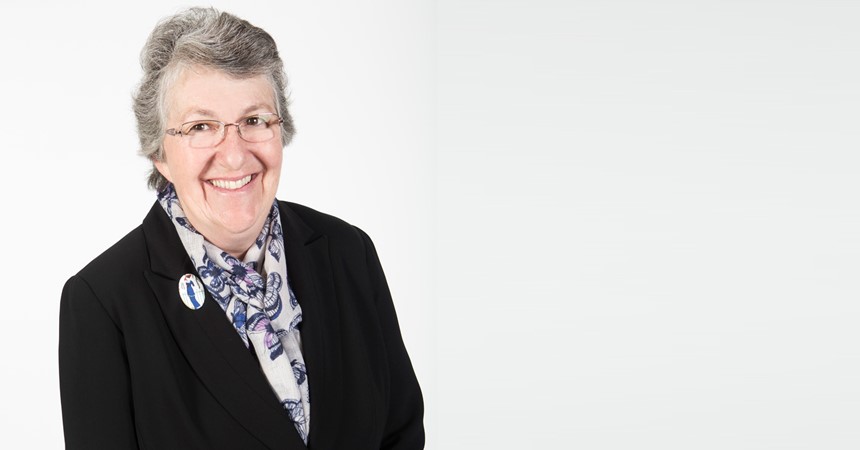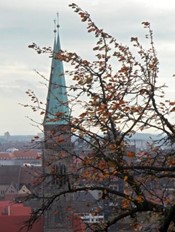 I am looking forward to cooler days and nights and the change in the colours of the landscape. I don’t really enjoy the shorter days and the thought that winter follows. It’s a bit like Lent and the call to prayer, fasting and almsgiving which leads to our soul searching in anticipation of Easter.
I am looking forward to cooler days and nights and the change in the colours of the landscape. I don’t really enjoy the shorter days and the thought that winter follows. It’s a bit like Lent and the call to prayer, fasting and almsgiving which leads to our soul searching in anticipation of Easter.
The readings from the weekend have people asking the vexed question about why bad things happen, and most especially why they happen to good people. Of course people have asked this of me over the past two months, seeking an answer as to why a baby, who is perfectly well, would die and what questions emerge from that experience. My response is that it is what it is, and there is no rational response - it is what it is. Our God is not a vengeful God who seeks to punish or to destroy us. God is with us and companions us on our pilgrim way, in the good and the not so good. This attitude does not remove or relieve the pain and distress, but it does not seek to lay blame with God or with anyone.
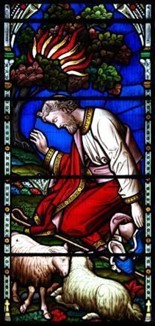 Moses discovered this when he led his flock into the wilderness. It is here on a mountain that he encounters God, who calls him and invites him to take off his shoes because “the place on which you stand is holy ground”. I love this image and the notion that we are all standing on holy ground. Our journey is sacred and God has given us a name – I Am who I Am. We have a relationship with God, one based on mutuality, on being called by name and on being able to call God by name.
Moses discovered this when he led his flock into the wilderness. It is here on a mountain that he encounters God, who calls him and invites him to take off his shoes because “the place on which you stand is holy ground”. I love this image and the notion that we are all standing on holy ground. Our journey is sacred and God has given us a name – I Am who I Am. We have a relationship with God, one based on mutuality, on being called by name and on being able to call God by name.
The notion of a God of love can be hard for people to grasp. If we look to the person of Jesus, as God made flesh, then a God of mercy and kindness, from the psalm – “The Lord is kind and merciful” – is possible for us to comprehend.
However, the sticking point for most people is that they do not encounter kind and merciful relationships. Our weekend readings point to our long connection with Abraham, Isaac and Jacob, our ancestors in faith. I wonder how many of you consider your own ancestors in faith. Over the weekend, the notion of my own ancestors in faith came to me. Once a year, we have a family gathering of relatives from Mum and Dad’s families. Of course those who can from my first family (my brothers and sisters) and their spouses and children come and then we meet up with aunts, uncles, cousins and also nieces and nephews. Each year about forty people gather and our connection with each other is very strong. One of the things I sense when we get together is our shared faith and the origins of that faith, in time and in space. We are not just a random group of people who meet once a year and then disperse; we have a common story which has been linked to an even bigger story of location and ancestors. Not only do people chat about their present circumstances but they also share in the past stories (history) and remember those who shaped them. People also note physical similarities and spend time listening deeply, laughing and sharing good food, drink and conversation.
The place of family and our own identity cannot be underestimated. We are created for relationships and the ties with our family of origin are incredibly formative. God knows this, and chose, in becoming human, that Jesus would be born of an earthly mother and father. Jesus, the incarnation of God, grew up in a family setting and came to the realisation of who he was, and what his mission was, through the relationships he formed with his parents, relatives and friends. Clearly his Jewish roots were significant in his spiritual formation, demonstrated in the way he interpreted scripture and told stories, and then in his own self-understanding.
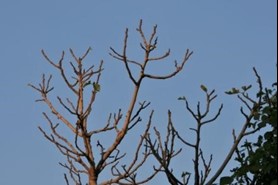 I believe this to be true for our own reality. We know that to be human is to be spiritual and like other aspects of being human, it is formed in relationships – family, friends, acquaintances, school, church and nowadays through technology! Our experiences shape us so we need to be mindful of those experiences we choose for ourselves and for those we may have responsibility in forming. The Gospel story for the weekend recounts the parable of the unproductive fig tree. And even after many years of looking after it, it still bore no fruit, but the person responsible for the vineyard, the gardener, seeks another year of fertilising it and digging the soil around it in the hope that it will produce fruit and not be cut down.
I believe this to be true for our own reality. We know that to be human is to be spiritual and like other aspects of being human, it is formed in relationships – family, friends, acquaintances, school, church and nowadays through technology! Our experiences shape us so we need to be mindful of those experiences we choose for ourselves and for those we may have responsibility in forming. The Gospel story for the weekend recounts the parable of the unproductive fig tree. And even after many years of looking after it, it still bore no fruit, but the person responsible for the vineyard, the gardener, seeks another year of fertilising it and digging the soil around it in the hope that it will produce fruit and not be cut down.
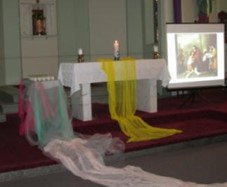 As you know, Fr Richard Shortall sj is here with us as our Missionary of Mercy (MOM). He spent his first week at Lochinvar and was available for the community – parish, the Sisters of St Joseph and schools. On Thursday night, he prayed for healing and mercy with the community, something that will happen in each location throughout the year. Of course it is my hope that many will avail themselves of the opportunity to meet with Fr Richard or gather as a community. We need to connect with our religious roots because they continue to form us and assist us in making sense of our lives, even the most senseless aspects of it. Much of what goes on is mystery and yet with faith, hope and love, I believe we can bear so much more than those who are left lost by the events that life throws at us.
As you know, Fr Richard Shortall sj is here with us as our Missionary of Mercy (MOM). He spent his first week at Lochinvar and was available for the community – parish, the Sisters of St Joseph and schools. On Thursday night, he prayed for healing and mercy with the community, something that will happen in each location throughout the year. Of course it is my hope that many will avail themselves of the opportunity to meet with Fr Richard or gather as a community. We need to connect with our religious roots because they continue to form us and assist us in making sense of our lives, even the most senseless aspects of it. Much of what goes on is mystery and yet with faith, hope and love, I believe we can bear so much more than those who are left lost by the events that life throws at us.
So my hope is that we are shaped and transformed in the Jubilee Year of Mercy and our 150 years as a 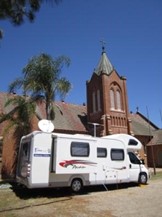 diocese. I know that, like most families, we, as church, are not a perfect society, and yet if we abandon the essence of our DNA, we as individuals will be lacking, and then the community and society as a whole will struggle. Please take on being the gardener and till the soil, fertilise it and see if the ‘fig tree’ will finally bear great fruit. It was wonderful to be with my family on the weekend and to be nourished by them and to be reminded of the importance of my roots.
diocese. I know that, like most families, we, as church, are not a perfect society, and yet if we abandon the essence of our DNA, we as individuals will be lacking, and then the community and society as a whole will struggle. Please take on being the gardener and till the soil, fertilise it and see if the ‘fig tree’ will finally bear great fruit. It was wonderful to be with my family on the weekend and to be nourished by them and to be reminded of the importance of my roots.
Teresa Brierley
